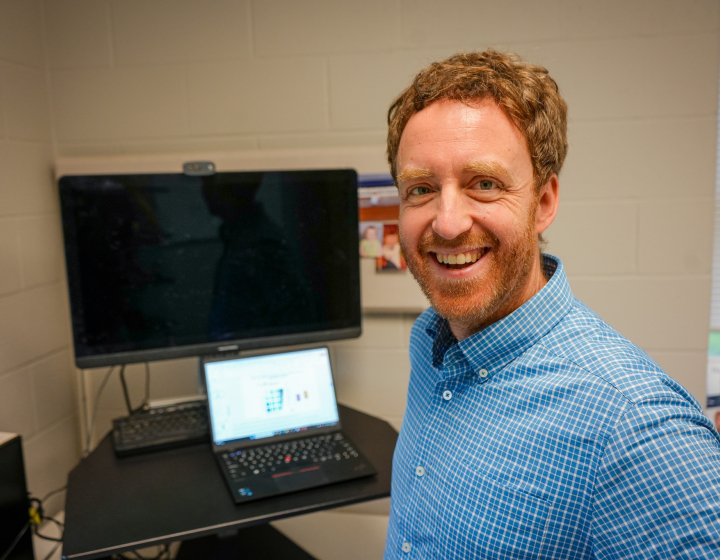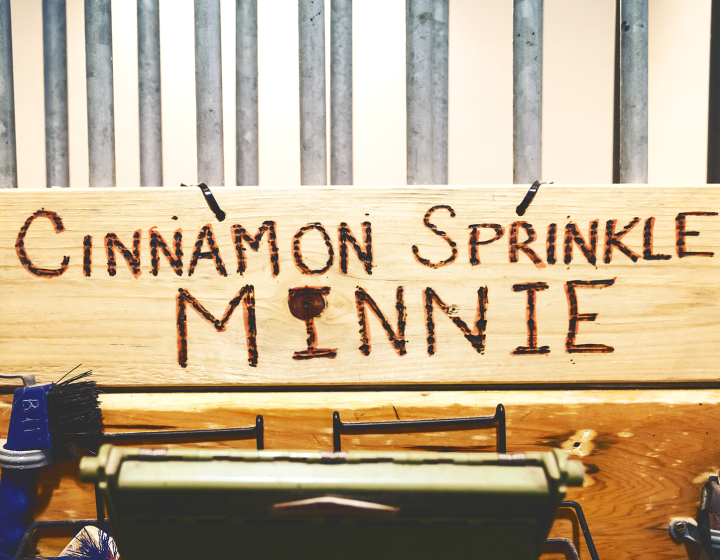Tradition and toe-taps: White Coat Ceremony takes place with a nod to current coronavirus concerns
[Editor's note: since publication of this story, all clinical rotations for Cornell veterinary students have been canceled.]
Cornell University, like universities across the nation and the world, is now empty of students. In what seems like a lifetime ago, however, third-year Cornell veterinary students were able to gather one last time on March 7 to celebrate their White Coat ceremony.
Gathering with family, faculty, friends and staff, the group celebrate this beloved moment in their educational journey just before all normalcy and tradition would come to a screeching halt and Cornell’s restriction against gatherings of 100 or more people* between March 9 and April 15 went into effect.
Lorin D. Warnick, D.V.M., Ph.D. ’94, greeted attendants, explaining how the ceremony marks the transition from preclinical coursework to a year of clinical rotations. “You are entering a new phase of your education and will begin to apply the knowledge you have gained in the classroom and laboratory in the context of clinical cases,” he said. He acknowledged the ongoing global concerns around coronavirus. “While this is a celebratory event, I also want to acknowledge that we are in the midst of a challenging global disease outbreak that has caused serious suffering, disruption and anxiety.”
Warnick noted out how the COVID-19 crisis is a timely reminder of how important veterinarians are to the health of society. Warnick also called attention to some essential attributes in veterinarians, including curiosity, perseverance and the power of persuasion.
Warnick illustrated these with anecdotes from his time as clinician with the Ambulatory service, including when one student convinced him to adopt a dog in need of a home and another persuaded him to transport a box full of farm kittens in the ambulatory service truck, with the goal of adopting them out amongst their other classmates. “The kittens started out in the box but by the time we arrived back at the college they had escaped and were in every nook and cranny of the pickup cab,” Warnick recalled. “We had to perform one careful cat extraction after another. For the next few days, any little noise I heard in the truck made me wonder if we had missed one.”
In his concluding remarks, Warnick told the Class of 2021, “As you start your clinical rotations, I commend to you these three attributes: curiosity, persistence and persuasion. When tempered with good judgment, also an essential ingredient, they will serve you well to develop as clinicians, to make new discoveries, and to communicate effectively to bring about positive change.”
Next students came to have their selected mentor place the symbolic white coat on their shoulders. Traditionally, students shake hands with the dean after being coated. However, due to concerns around coronavirus, students came up with creative alternatives: air high-fives, double finger-points, elbow bumps, toe-taps, prayer bows and Warnick’s own creative solution: using an inflated veterinary examination glove to high-five a student.
With all students coated, Mark Olcott, D.V.M.’95, president of the Alumni Association Executive Board, led the group in reciting the Veterinarian’s Oath.
Next, keynote speaker Renee Bayha ’80, D.V.M. ’86, took to the podium. “I am so honored to be here today, for your transition from your classroom studies to your clinical studies,” said Bayha, who went on to share insights from her fellow Cornell D.V.M. classmates on their lessons learned from veterinary practice: “Encourage an environment of collaboration;” “Practice takes time, so be patient with yourself;” “Be sure to make time for those you love and the things you love to do;” “Don’t stay in a situation where people are not supported, valued and empowered to be the best they can be;” and Bayha’s final word of advice, “You may find that times of giving back may be your most rewarding and impactful moments in practice and in life.”
After recounting anecdotes from her own career and those of her colleagues, Bayha concluded, “It’s time to get those white coats dirty. Our profession is in good hands — your hands… Keep an open mind and an open heart, and it will take you far.”
* Since publication, Cornell University has suspended all classes, including clinical rotations, from March 13 for three weeks, and will resume with virtual instruction only.
-By Lauren Cahoon Roberts




